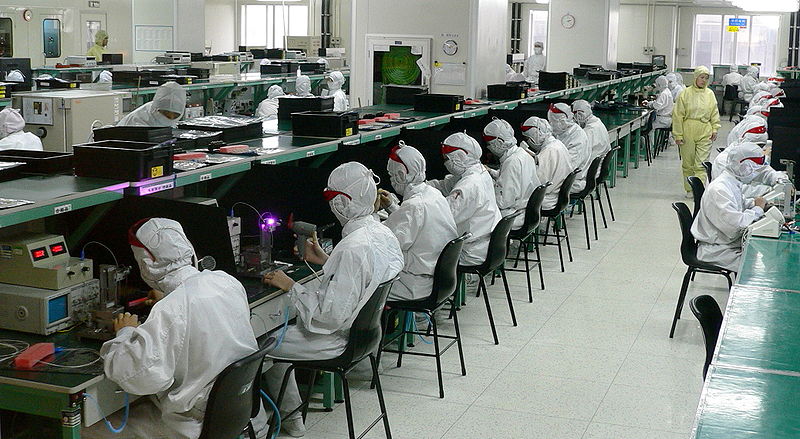

A Foxconn factory in Shenzhen, China. Image credit: Steve Jurvetson
Apple has warned customers of longer wait times for new iPhones as a Covid-19 lockdown at the world’s largest iPhone factory affects shipments of the latest generation of the device, introduced in September.
The facility in Zhengzhou operated by Apple supplier Foxconn is “currently operating at significantly reduced capacity“, Apple said.
“We continue to see strong demand for iPhone 14 Pro and iPhone 14 Pro Max models,” the company said in a statement.
“However, we now expect lower iPhone 14 Pro and iPhone 14 Pro Max shipments than we previously anticipated and customers will experience longer wait times to receive their new products.”
The company added that it is “prioritising the health and safety of the workers in our supply chain”, adding that it is “working closely with our supplier to return to normal production levels while ensuring the health and safety of every worker”.
The final quarter of the year is peak time for iPhone shipments due to holiday demand and Apple is expected to build about 41 million iPhones during the period, UBS analysts said on Sunday.
The lockdown in Zhengzhou is likely to affect “several million” of those devices, UBS said, adding that it expects “longer wait times” due to Covid disruptions and strong demand for high-end models.
About 60 percent of Foxconn’s iPhone assembly takes place at the Zhengzhou complex, known informally as “iPhone City”, Morgan Stanley estimated in a report last week.
Foxconn on Monday said it would revise down its outlook for the quarter “due to the pandemic affecting some of our operations in Zhengzhou”.
The company said the local government had made it clear it would always fully support Foxconn’s production.
“Foxconn is now working with the government in concerted effort to stamp out the pandemic and resume production to its full capacity as quickly as possible,” the company stated.
China has remained committed to its zero-Covid policy in spite of the heavy toll that the the strategy has increasingly levied on the country’s economy, including a property slump, supply chain disruption and the risk of a global recession.
Figures released on Monday showed China’s imports and exports contracted unexpectedly in October, the first decline since May 2020.
Binance BNB token rises after WSJ report the Trump family is in talks to secure…
After failed Amazon deal, iRobot warns there is “substantial doubt about the Company's ability to…
Community Notes testing across Facebook, Instagram and Threads to begin next week in US, using…
Complete 180. FTC attorney now says federal agency can pursuit Amazon trial, after citing “severe…
Former board member and respected chip industry veteran Lip-Bu Tan appointed to lead troubled US…
MPs demand secret High Court hearing be held in public, after government had ordered a…